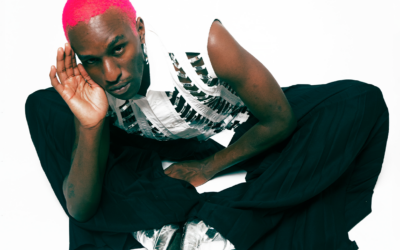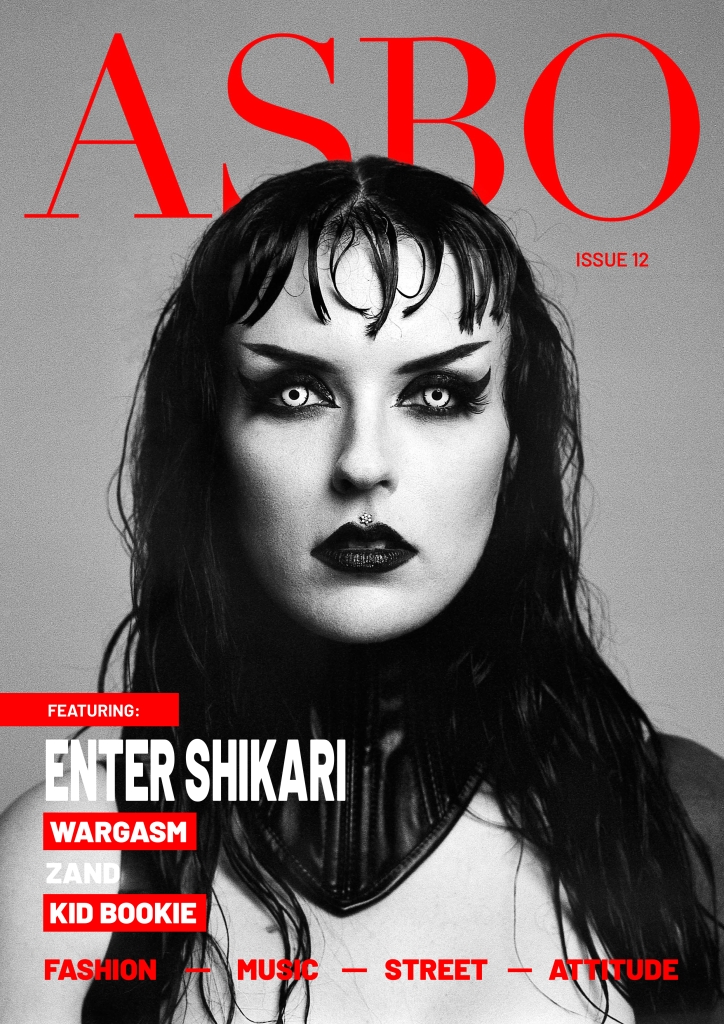Words: Richard Hudson-Miles. Images: Frederick Wilkinson . Styling: Kitty Cowell. Styling Assistant: Emily Cornwall
In Beyond Good and Evil (1886), Friedrich Nietzsche warned ‘Battle not with monsters, lest ye become a monster, and if you gaze into the abyss, the abyss gazes also into you’. As with most of Nietzsche’s writing, this short and oft-cited aphorism continues to reveal profound truths about our society, and indeed the human condition today. This is probably why Enter Shikari have paraphrased Nietzsche’s words for the title of their impending single release, ‘The Void Stares Back’.
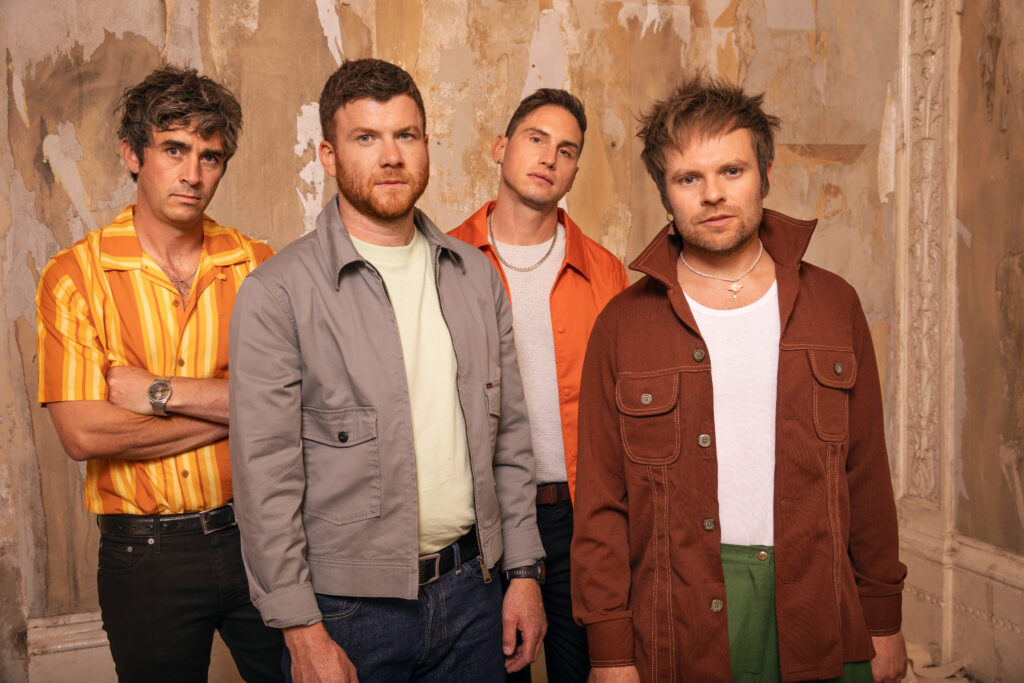
This one-off single release is the band’s first since the album Nothing Is True & Everything Is Possible (2020). It exudes the confidence of an imminent hit single and a band on form. It also contains everything that fans of Enter Shikari would want. It opens with techno breakbeats and a pitched up vocal sample which sounds like classic 90s Prodigy. This then cedes to a piano breakdown, followed by a euphoric chorus, which could easily be a late Summer singalong anthem at festivals. Then, the track descends into distortion and heavy metal death growls, courtesy of vocals from the similarly genre-defying electro-metal duo WARGASM, also featured in this issue of ASBO. Reynolds describes consciously pushing his abilities as a producer with this track. Deliberately, “each section has its own atmosphere, and is vastly different from the last, so you have a journey of instrumentation and texture, all the while remaining high energy. I would say this was inspired by hyperpop but we we’ve been doing this kind of thing for years of course. Despite its pop pretentions and appropriately anthemic chorus, the Nietzschean title of this track suggests a level of philosophical reflection which you don’t find in most pop or metal music.

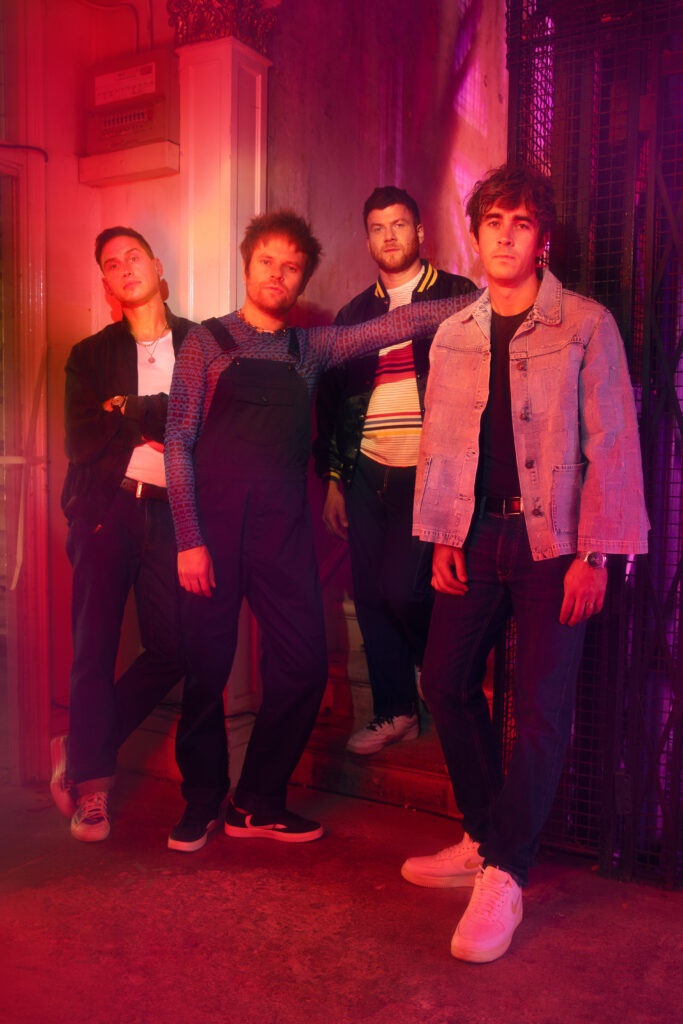

This will not surprise longstanding supporters of the band. Since their earliest releases, Enter Shikari have shown an interest in philosophy and, in Rou Reynolds, they have one of the most erudite frontmen in rock. This is obvious throughout Reynolds’ two book-length expositions of Enter Shikari’s lyrical content – Dear Future Historians (2019) and A Treatise on Possibility: Perspectives on Humanity Hereafter (2021). Both of these combine unflinching auto-biographical honesty with philosophical reflection and scathing social critique. Here, Reynolds unpacks how tracks like ‘Bank of England’ (2016) borrow concepts from the Scottish economist Adam Smith and the sociologist Thorstein Veblen to critique the social consequences of capitalist free market economics. In this same book, Reynolds also explains in detail how the lyrics for Enter Shikari’s award winning fifth album The Spark (2017) were inspired by philosophy. Alongside Nietzsche, who Reynolds reads avidly, particular influences on this album were the French enlightenment philosopher Jean-Jacques Rousseau, the early nineteenth century German philosopher Arthur Schopenhauer.

These philosophical influences inspired a turn to introspection and vulnerability, evidenced in The Spark (2017). Reynolds’ songs referenced his anxiety and panic attacks (‘Live Outside’), as well as spitting venom at the political discourses of Trump-era USA and the impending Brexit-era UK (‘Take My Country Back’). This rightly won the band many plaudits. Kerrang recognised the album’s importance with an Album of the Year award (2018), applauding the special way its songs connected to the volatile political backdrop of the era. They also rightly commended the band’s new sensitivity, which was also reflected in a softer sound for the band. Whereas The Spark explored vulnerability, Reynolds claims that Nothing is True… was a cathartic celebration of human possibility, informed by Nietzschean philosophy. This shift in focus can, in fact, be identified earlier, within two key tracks on The Spark. Firstly, ‘Live Outside’, in which Reynolds describes ‘dancing with the devil’ during a three-month struggle with insomnia and mental health. Here, a flood of dark thoughts and fears fed off his increasing fatigue, causing him to feel like the only escape was to take his ‘consciousness out of [his] skull and take a break from it all’. This is certainly one form of the void which Nietzsche speaks of in the quote above. Instead of monsters, Reynolds sings about “taming, keep training, keep taming the horse / But it’s wild, it’s feral and it’s running its course / Patiently, madness waits in line”. Secondly, ‘The Sights’, which details the ‘renewed zest for life’ following this period of adversity. This track concerns reinvigoration, the sun after the storm, the light at the end of the tunnel. Yet, this affirmative quality is always tempered by trepidation. For example, in the lyrics “You’re my new planet to orbit / So fire up the rockets / It’s over now / And I’m a little bit scared of what’s to come”. Here, you get a strong sense of someone who has fought with monsters and not emerged entirely unscathed. Commenting on the circumstances behind this track specifically, Reynolds recollects that ‘I spent a good while clinging to various things in my life because they were comforting. I didn’t realise (or possibly chose not to realise) how these comforts were actually destructive. Put simply, when your medicine, whatever that may be, is also your poison, then you have a problem. This is the precise psychological condition which Nietzsche encapsulated as the abyss staring back into you. At the most simplistic level, in this quote Nietzsche warns that the fight against evil always risks reproducing worse evils. A case in point would be the various atrocities carried out by
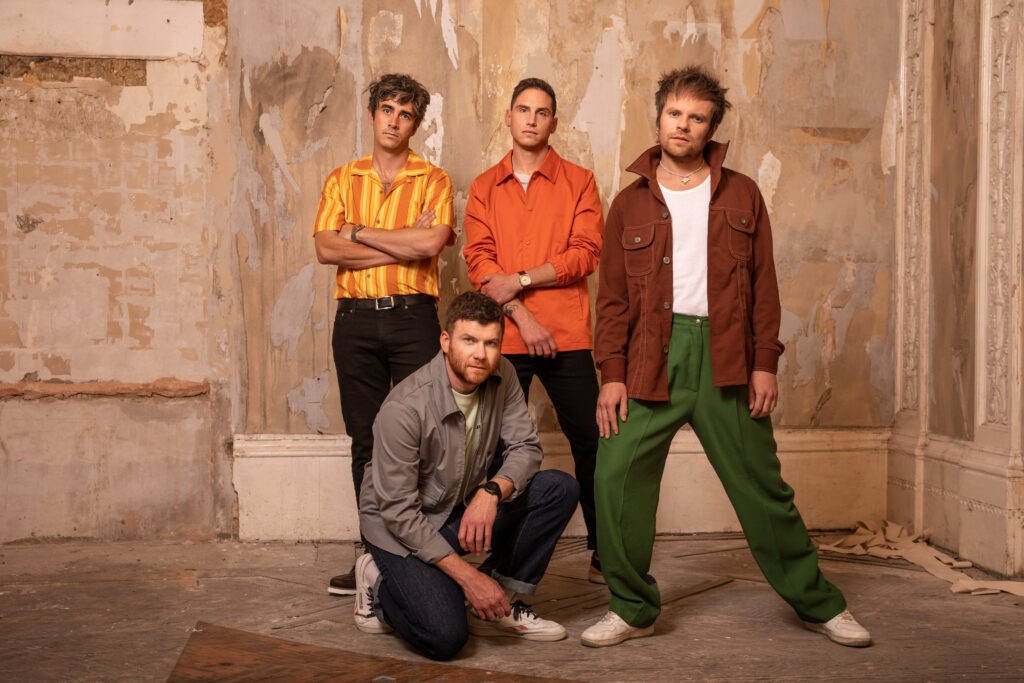
Coalition forces in Iraq and Afghanistan in the name of liberty. Beyond this, Nietzsche’s abyss is also a reference to the precarity of the human condition. In Thus Spoke Zarathustra, he insisted that “Man is a rope, fastened between animal and Overman [Übermensch] – a rope over an abyss’. This could also be understood as the path which mediates between the herd and the leader, ignorance and enlightenment, cowardice or heroism, or self-destruction or self-actualisation. Listening to Reynolds words, it is clear that he, like Johnny Cash also, knows what it is like to walk that line.
Reynolds: “There is always a clear divide in society between those who embrace change and those who are reluctant, but it certainly seems heightened at the moment. We have on one side, those who live sheltered lives, with narrow experiences, and poor imagination, those who detest alternatives, be that in sexuality and gender, fashion, music, economics, social design, and on the other side, those who want to push archaic conventions forward”.
The abyss is a recurring motif in Nietzsche’s work. It represents both the absence of meaning in a society which has killed beyond God, and the gravity which pulls humanity toward that meaninglessness. It also works as a metaphor for the tragedy of life. Reynolds has stated he is an avid reader of Nietzsche, and this comes through loud and clear. Alongside the Nietzschean connotations, for Reynolds the abyss, or void, evidently also refers to an internal, psychological state. Here, deep in the unconscious, negative thoughts fight with something more life-affirming. In Reynolds’ words, the ‘ability to examine, probe, analyse, design, create and persevere’. From Nietzsche, Reynolds has taken the lesson that ‘a thought, even a possibility, can shatter and transform us’. Whilst representing rebirth or metamorphoses, Reynolds insists that Enter Shikari’s latest work is also a black mirror held up to the trajectory of modern society. Between abyss and possibility, Nothing is True and Everything is Possible seems undeniably Nietzschean.
‘The Void Stares Back’ picks up where Enter Shikari’s last album left off. Here, the Manichean opposition between neurosis and vitality are replicated musically in the song’s production. The dark side is supplied largely by the guest act WARGASM. As the breakbeats merge with fuzz guitar riffs, which will later break into a crescendo of full-blown distorted power chords, Sam Matlock and Milkie Way interchange vocals rapidly. The effect is to create one schizophrenic voice from the abyss, ranting manically against society. This voice oscillates between anger and action, self-destruction and retribution: ‘How it got so dark / How we got so cold / I’d feel safer jumping out a window / And landing on a street / All paved with shards and burning cars it looks like / Desperate times call for desperate crimes’. Against these paranoid, noisy, and violent sections, it is impossible not to experience the track’s chorus as a joyful, ecstatic, even spiritual release. In this moment, the song literally lifts us from the monstrous blackness which permeates other parts of the track. Describing the creative energy which inspired the chorus, Reynolds reflects that “sometimes it feels like people think these new forms of expression and organisation are so foreign and frightening that they must come from “another dimension”. For him, “the chorus lyrics embracing this alien identity”. This is not just introspection but also an image of solidarity, community, and humanity. When Reynolds sings the chorus “Oh, did I mention? / I’m from another dimension / And oh where I come from / There’s no way I’m the only one”, I challenge you not to sing along.




